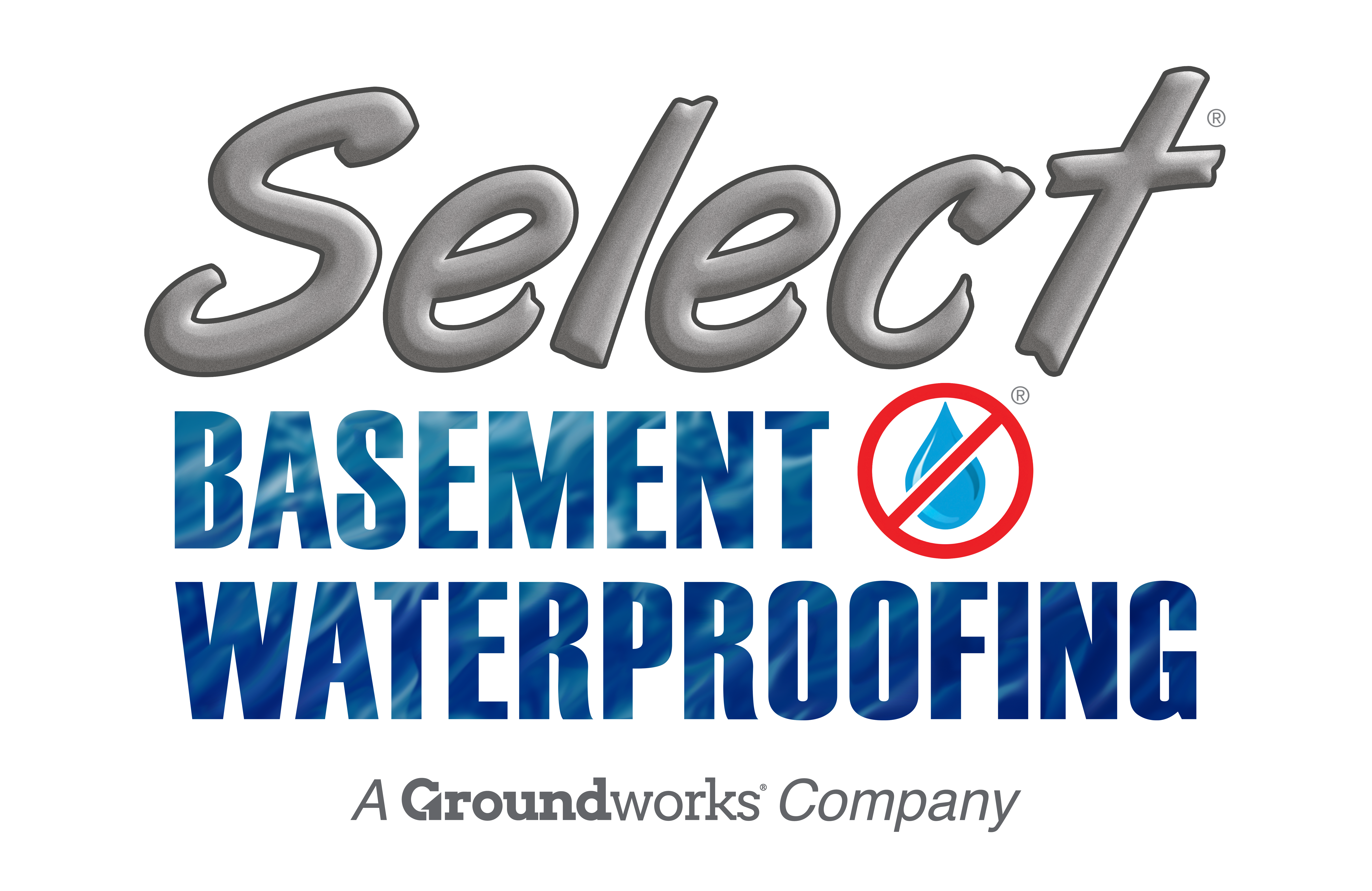
Elevator Waterproofing – Fixing Leaks in Elevator Pits – Bergen County, NJ
Elevator pits are sensitive areas. However, they are often forgotten. These pits are often below the ground floor of the building. Modern elevators are constructed in the foundation and have concrete poured around them.
Leaks often occur in elevator pits that are found below the water table. The water table rises and falls as a result of changes in seasons. This results in movements in the soil surrounding the foundation and the elevator pit. The elevator pit develops structural problems that result in leaks.
Faulty elevator waterproofing:
If you ensured that elevator waterproofing was installed in the construction phase of the building, you probably think that you won’t have any seepage problems in your elevator pit ever again. The truth is that the installation of these systems is often faulty. This is especially true when the contractor carrying out the installation is not a professional waterproofing contractor.
In other cases, the leaking may occur simply as a result of the wear and tear of time. As the elevator pit succumbs to age, the waterproofing system will also begin to fail. The membranes used to keep water out of the elevator pit begin to disintegrate and this affects the performance of the system.
Take action:
The solution you apply to solve the elevator pit leaks will depend on the cause of the leaks. It is best to deal with the root cause of the problem before you deal with the cracks that are letting water into the pit.
The solutions you choose for sealing leaking cracks in elevator pits will depend on the construction of the elevator pit.
- Sealing leaks in poured concrete walls:
If the elevator pit has poured concrete walls, you can seal the cracks using a crack injection. It is important to choose a crack injection that you can use in both wet and dry conditions. It should not react with water and should form a tight seal within a short time.
2. Sealing brick and block walls:
If the elevator pit is constructed from block or brick, the water is most likely seeping through the joints between the individual blocks. These joints are points of weakness in the wall. Sealing leaks in this case would require the use of grout to seal the joints.
Talk to an elevator waterproofing contractor to determine your options. They will guide you on the best solution for waterproofing your elevator pit.
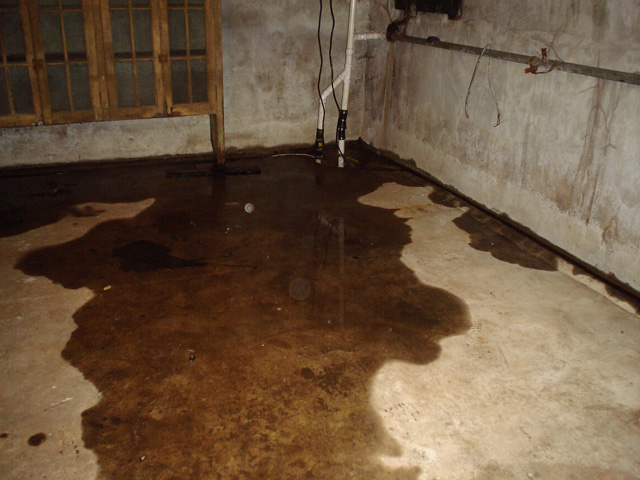
The 4 Permanent Basement Waterproofing Solutions
Basement Waterproofing
When searching for a solution for your leaking basement, you’ll be bombarded with a wide variety of massages. If you’re not familiar with basements and how they function (like most homeowners), you may fall for a scam.
As a homeowner, it is important to seek as much information about basements as possible when considering basement waterproofing solutions. This will ensure that you make an informed choice and avoid being lured by flashy sales gimmicks.
There are many different types of solutions for basements in the market. However, the following are the basic permanent waterproofing solutions currently available:
-
Waterproofing membranes
Water can find its way into your basement through cracks and crevices in foundation walls. A waterproofing membrane can be applied on the external surface of the foundation wall to prevent water from penetrating into the basement.
This waterproofing solution involves excavating the soil around the foundation wall and installing the membrane. The soil is then returned.
-
French drains
Water collecting in the soil can exert pressure on the walls of your foundation. The water in the soil is then forced through the cracks and crevices in your foundation walls and into your basement. This is especially common in homes built in areas with a high water table.
The best way to solve this problem is by relieving the hydrostatic pressure. This is possible through the installation of a French drain. The water collects in the French drain and is guided into a well.
-
Sump pumps
These are usually installed together with French drains. The sump pump is installed in a sump pit or well where water from the surrounding soil collects. The water is then removed from the well by the pump. This reduces the hydrostatic pressure on the foundation walls. It also prevents the flooding of the basement especially during heavy downpours.
-
Grading
Your landscape plays a major role in the health of your basement. If the landscape slopes towards your home, water will follow the slope. It is therefore important to ensure that the land around your foundation slopes away from the foundation. This will reduce the pressure of the water against the foundation walls.
These are only a few of the many solutions that professional contractors can offer you for permanent basement waterproofing. It is important to discuss your options with a contractor and find what will work best for you. The solutions can be applied on their own or in combination for the best results.
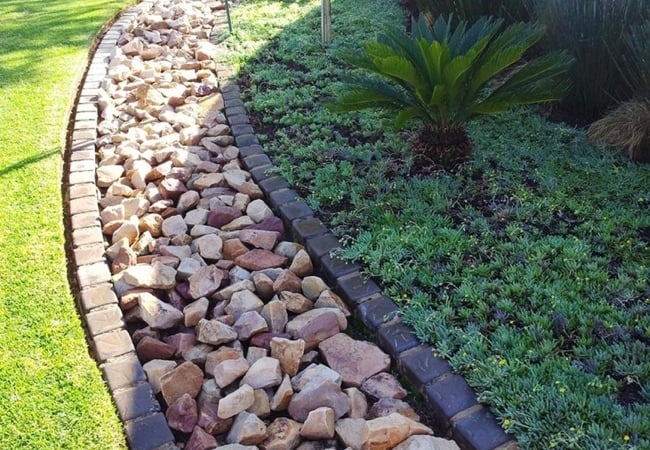
Interior and Exterior French Drain Solutions
French Drain
If you’re having a problem with basement moisture, you may need to install a French drain. This can be a great asset to your home. It offers various advantages including:
- It is an effective long term solution for moisture problems
If you want to keep water from flooding your basement, then a French drain is a great solution. This feature will direct water away from the foundation and keep it from causing a flood or other moisture problems. You won’t have to deal with a wet or messy basement ever again.
- It is easy to install
This solution for basement moisture is easy to install and requires no maintenance. With the help of an experienced contractor, you can have it installed within a few hours and begin to enjoy the benefits of a dry basement.
- It is a green solution
These drains rely on gravity for their function. If you’re looking for an economical and green way to direct water away from your basement, then this is the best solution. You can go a step further by requesting your contractor to use eco-friendly materials for the construction of your drain.
The only difficultly you’ll experience with this solution is deciding on whether you want to have an exterior or interior drain tile.
Interior Drains
An interior drain tile will not prevent water from finding its way into the basement. However, it will collect and guide water into a well where a sump pump can pump it out of the basement. Installing the drain tile involves cutting a channel in the floor along the perimeter of your basement. The soil below the floor is excavated and the drain tile installed. A well and sump pump are also installed in the basement.
Exterior Drains
Exterior drains help prevent water from penetrating the basement walls. The installation involves the excavation of the ground around the basement and installing the drain along the footings and foundation walls. There is no sump pump required in a system where water is guided away from the basement walls and into the storm drain. An exterior sump pump may be installed if the water is not guided to the storm drain.
Talk to your basement contractor and determine which method of waterproofing is best for your basement. Consider the pros and cons of each solution before making your final decision.
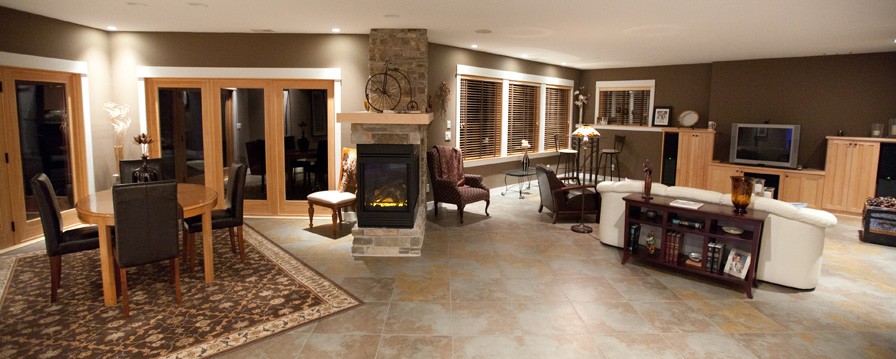
Basement Finishing: Should You Hire a Contractor?
Basement Finishing
As a homeowner in today’s struggling economy, it is tempting to want to do everything on your own. After all, it is a great way to save money. However, can you turn the finishing of your basement into a DIY project and be successful at it?
Basement finishing is a major undertaking. In this article, we examine whether or not you should hire a professional contractor.
The DIY Route
One of the major reasons homeowners decide to take this route is that they believe that they will save money. However, is this really true?
You won’t have to pay a fee for the services of a professional contractor, so you will definitely save on this. However, you may incur larger costs in terms of sourcing material and purchasing the right tools. Should you make any major mistakes while finishing your basement, you’ll incur an even greater cost hiring a professional contractor to ensure that the job is done right.
Another reason people opt for the DIY route is that it gives you complete control over your project. You decide what to do every day. You can change anything at a whim.
The problem with the DIY route is that basement finishing requires the expertise of various professionals ranging from plumbers and electricians to waterproofing contractors. Making mistakes in these critical areas can result in serious repercussions down the road.
There are also building codes and regulations to meet and safety hazards to consider. Finishing a basement is about more than cosmetics. It is about providing a long-lasting living space.
Using a Contractor
When you hire a professional contractor, you will have the benefit of relying on their experience and knowledge. A professional contractor is invaluable when it comes to planning, preparing for and executing the project.
Professionals also have widespread networks having worked in the industry for several years. They know where they can source materials at reasonable prices. They can therefore help you get the most value for the money you have.
Contractors will also help to ensure that all building codes and regulations are met in the execution of your project. They’ll check to ensure that all safety hazards have been considered. You can be sure of your project being completed safely and in accordance with the law.
Ensure that you hire a professional contractor with good references. A trustworthy contractor will ensure that the job is done right the first time round, therefore saving you thousands of dollars.
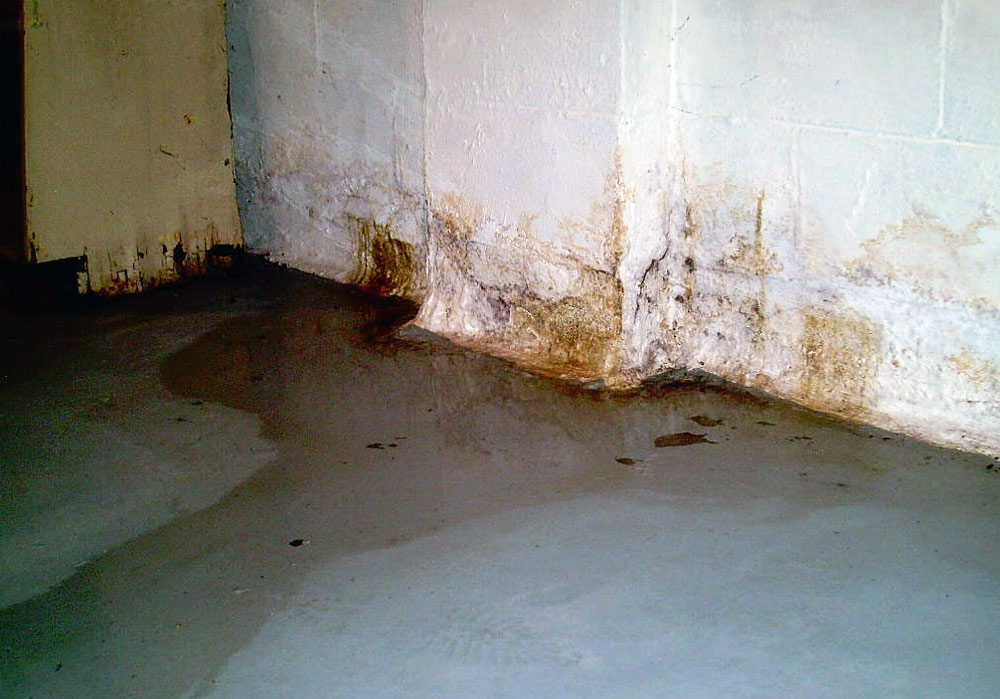
Common Solutions to Basement Moisture Problems
Basement Moisture
One of the most important things you can do for your home and your sanity is to deal with basement moisture problems. This will go a long way in not only protecting the value of your home but also the health of your family.
Wet basements are nasty places. They not only smell but feel nasty. If left unchecked, they can provide the perfect environment for mold and mildew to grow. They can also be the perfect home for other pests and insects.
If you’re determined to keep basement moisture out, here are a few strategies to get you started:
-
Add extensions to your gutters
Basement moisture problems aren’t confined to the ground level. They can result from further up. This includes the runoff from your roof. If the runoff is not been drained far enough from the foundation, it can result in moisture problems by increasing hydrostatic pressure against the basement walls.
You can prevent this from happening by adding extensions to the gutters. These extensions should drain water not less than five feet away from the house.
-
Fix the plumbing
Are the pipes in your home leaking or dripping water near the foundation? Call your plumber and have these pipes fixed or replaced. This will prevent the leaking from continuing. You will not only save your basement but save money by preventing water wastage.
-
Redirect surface water
If the landscape around your home is sloping towards the foundation, then surface water will flow towards your home. You’ll need to create a berm or trench that can direct water away from the foundation of your home.
One of the most effective ways of dealing with excess water in the soil is to install an exterior drain tile around the foundation walls. This will drain water from the soil and guide it away from the foundation walls. Be sure to have a professional basement contractor install this for the best results.
-
Waterproof your walls
If you want to keep the water out, then you need to ensure that the basement walls are impermeable. The best way to do this is by installing a waterproof membrane on the exterior surface of the foundation walls. These membranes keep the water out and ensure your basement is kept nice and dry.
These methods used in combination will ensure that you have a dry basement for the long term. Contact a professional contractor to help you find the best solution for your basement.

Important Steps in Preparation for Basement Finishing in Woodbridge NJ
Basement Finishing in Woodbridge NJ
Basement finishing allows you to turn your basement into a living space. A well finished basement can add value to your home by increasing the square footage of the living space in your home. It can also provide you with an opportunity to make some extra cash if you decide to rent the space out.
The right approach must be followed in basement finishing to ensure that the resulting space is comfortable, functional and safe for the long term. The following are important steps you should take to ensure this.
-
Waterproofing
This is one of the most important things to do before you attempt to finish the basement. Waterproofing will prevent moisture problems, such as the growth of mildew and mold as well as the deterioration of materials in the space.
Have a professional waterproofing contractor come in to inspect the basement and provide you with the best solution for waterproofing it.
-
Repair foundation cracks
Do you have cracks in your foundation? They could be signs of a deeper problem. It is important to have these cracks inspected by a foundation expert. They can identify the underlying cause and help you solve the issue. It is advisable to have vapor barriers installed to prevent seepage into the basement.
If the cracks are non-structural and a vapor barrier has been installed, you can have the cracks sealed to improve the appearance of the walls.
Remember that repairing foundation cracks is not a DIY job. A foundation repair professional should be on hand to determine the best solution.
-
Have a sump pump installed
If you don’t already have one, ensure that a sump pump is installed. Have the space fitted with drain tile and a sump pit. You should also include a battery operated backup sump pump to ensure that flooding is prevented even when the primary sump pump fails.
A contractor should assess the basement and design a drainage system that is adequate for the space.
-
Prepare the floor
Having ensured that the space will remain dry even in bad weather, it is time to prepare the floor for the finishing. This will depend on the type of finishing you want for your basement floors. However, leveling of the subfloor is necessary regardless of the type of flooring you want to install.
Ensure that you choose a reliable and licensed basement contractor to assist you with basement finishing. This will ensure that you can enjoy the results of your investment for many years to come.
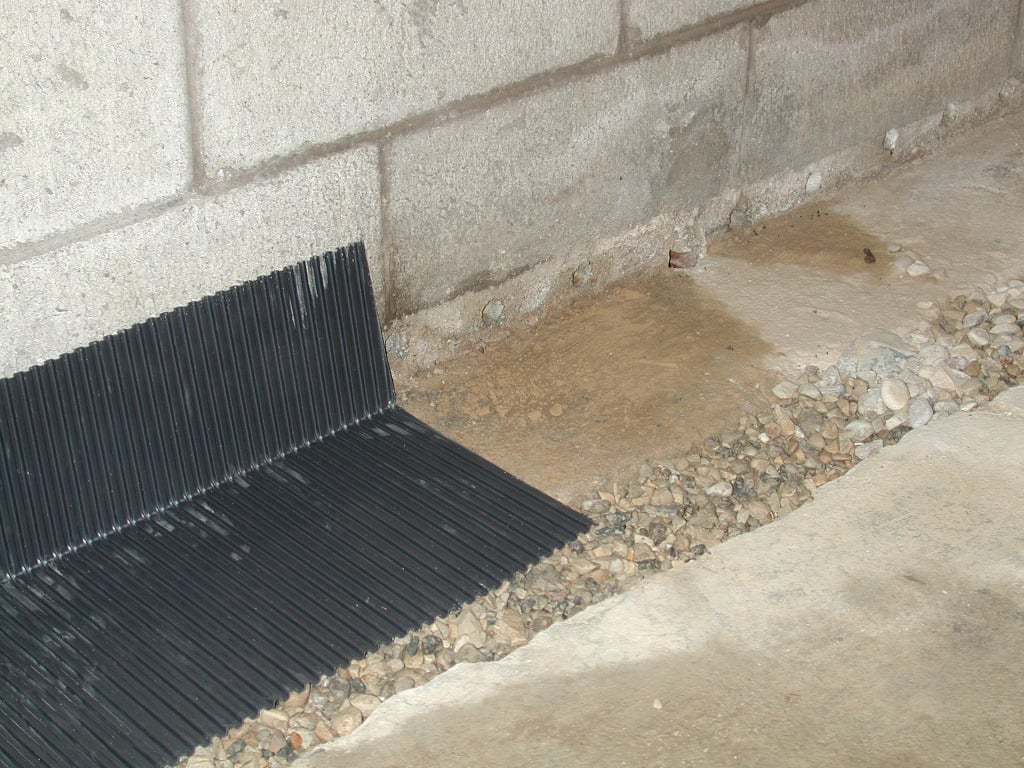
3 Reasons Why a Plumber Shouldn’t Install Drain Tiles
Drain Tiles
Basement waterproofing refers to the process of using certain methods, materials and techniques to prevent water from penetrating the basement of a building or house. Since a basement is always located underneath the house or building waterproofing would require the use of strong sealants and materials as well as the installation of drain pipes and sumps to collect and remove water from accumulating in the basement.
Finding someone to repair leaks in your basement or home and perform any other repairs related to water seepage, leaking or flooding can be difficult. If you have a ‘water’ problem the first person that pops in your mind is a plumber but you would actually have to seek the basement waterproofing contractor.
Seepage through a cove joint is one common water problem in any basement. The cove joint is a small opening that lies between your basement floor and the wall. Heavy rainfall and melting snow cause hydrostatic pressure forcing water through the foundation.
Sealants won’t work as the pressure is so strong that it will force the sealants that is placed in the cove joint out. Instead, interior drain tiles will have to be installed to relieve water pressure to drain the water from the house.
Here are three reasons why a plumber won’t be able to install drain tiles –
- Training – Mostly plumbers are not trained or qualified to repair basement waterproofing problems. Their skills are directed towards how to control the entry and exit of water in the house in the proper fashion. Only the basement waterproofing contractor would be skilled and trained to fix basement water seepage problems.
- Experience – Even though the plumbers are efficient and could probably make out how to install drain tiles, they won’t have the necessary experience to finish the job efficiently. Only a basement waterproofing contractor would have the years of experience dealing with all kinds of basements to have the installation and design experience to properly install basement drain tiles.
- Materials and technology – Again only a basement waterproofing contractor would have all the requisite materials, products, and high-end technology needed to safely and effectively install drain tiles in the basement of a house or building and keep your basement clean and dry.
A plumber, even though his work has evolved through the years, will carry only the materials and equipment he would need to carry out his plumbing work effectively. The technology and material required for basement waterproofing would be much more expensive than what a plumber can afford.

3 Major Causes of Basement Moisture in Woodbridge NJ and Effective Remedies
Basement Moisture in Woodbridge NJ
If your home is built over a basement or crawl space it is highly likely that you are experiencing moisture problems in these spaces. According to American Society of Home Inspectors (ASHI) 60% of American homes suffer from basement moisture and 38% of these run the risk of toxic mold growth.
Why Care about Water in Basements?
The damage that is caused by such moisture cannot be underestimated. The National Foundation Repair Association, Inc. (NAFR) says over 70% of their members’ projects have to do with foundation damage caused by water leakage. What’s more, the risk of toxic mold growth to families is well detailed in studies by EPA.
Your family is at risk of respiratory complications, eye and skin irritation among other health issues due to such mold growth. Wooden foundation supports are also at risk of rotting which compromises your home’s structural integrity. High indoor humidity level also increase chances of bacteria growth and also diminishes quality of indoor air.
Major Causes and Solutions for Basement Moisture
Here are some major causes of basement water and techniques contractors prefer to correct them:
- Surface Runoff
Flowing water on the surface poses great danger to your basement. It causes lateral hydrostatic pressure against walls which eventually seep through wall cracks and gaps. Crawl bowl effect where porous soil stands next to walls also causes basement water. Your contractor will correct the poor grading to force water away from your walls. Other techniques include external water proofing and installation of a weeping tile in your yard.
- Subsurface Water
If your basement is constantly wet even when there are no storms your foundation might be sitting on a high water table. When the water level rises, pressure against your concrete floor forces water through the floor. The most applicable solution here is use of a sump pump which automatically drains such rising water away from your basement. An interior drainage system along the walls can also be used in conjunction with the sump pump depending on the level of subsurface water.
- Condensation
This is one of the most overlooked causes of basement moisture but your contractor will help identify if this is the major cause. Condensation shows up in form of droplets on walls and the floors. It occurs when warm air through vent windows comes into contact with un-insulated pipes or cold surfaces in the room. Use of a dehumidifier in the basement has been found to work effectively in drawing away moisture in the basement to avoid damage.
There are many other techniques to remedy basement moisture including improving surface drainage, proper basement window well drainage among others. The bottom-line is that this is a problem that you can’t dare ignore.
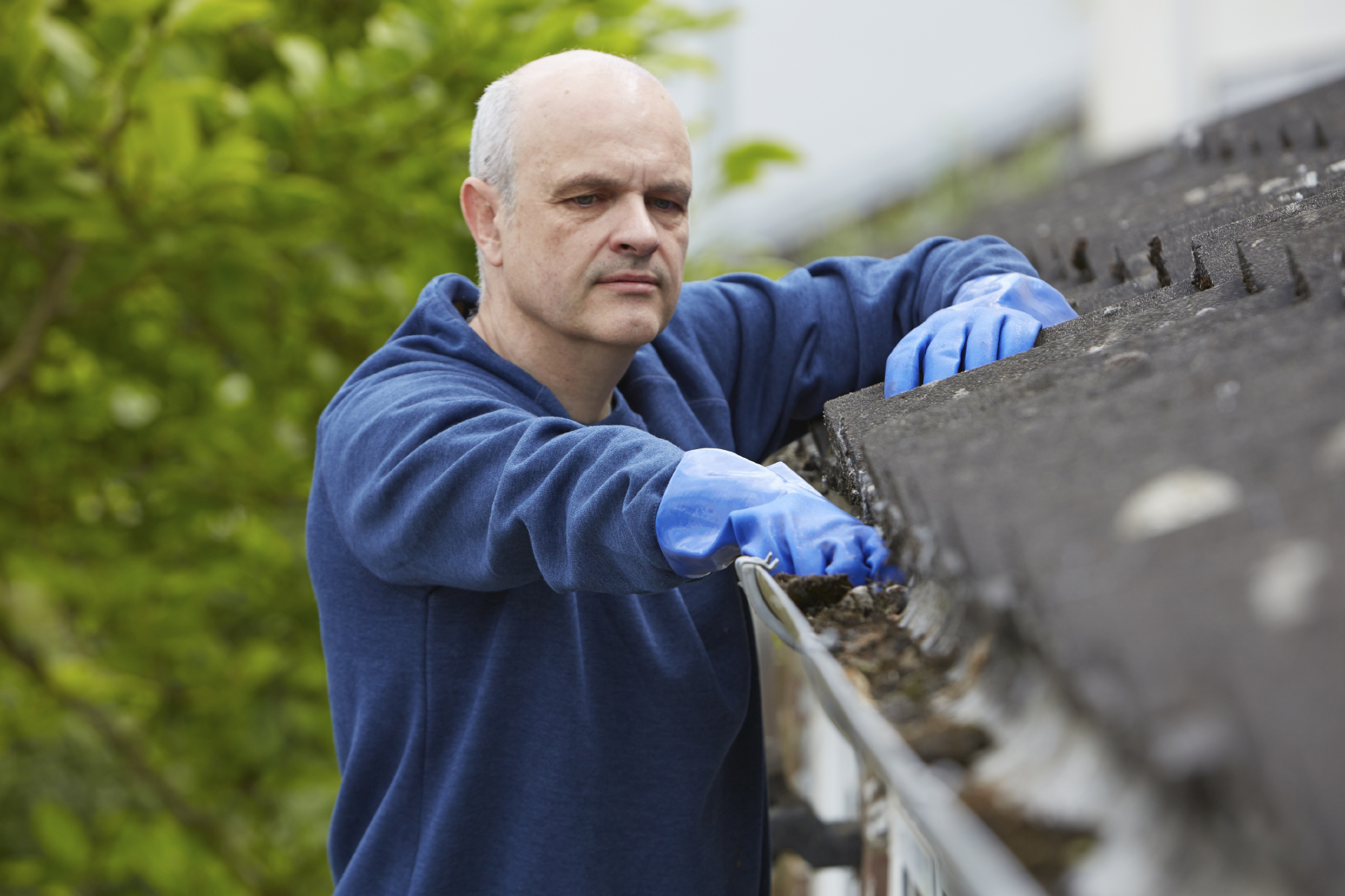
5 Important Tips on How to Prepare Your Home for Spring
How To Prepare Your Home For Spring
Phew, at last! This is a sigh always heard across the U.S when another long drawn and gloomy winter fades away. The blooming buds herald a less stressful period for homeowners, but there is a catch. During the throes of winter, your home is bashed right, left and center and you have to prepare it in order to enjoy the refreshing new season.
If you want to enjoy the warmer weather, it is imperative to learn how to prepare your home for spring by checking both the interior and exterior environment. This ensures it stays in tiptop shape for the rest of the year. Indeed, the American Society of Home Inspectors (ASHI) says over 67% of the repairs done in homes emanate from damage caused during winter. Here are some invaluable tips to prepare your home for this fascinating season:
- Work on the Gutters
Winter comes with storms and a lot of debris will clog your gutters and downspouts. These need to be cleaned because spring is characterized by sudden storms. Thawing ice also needs clear drainage lest such moisture ruins your walls and foundation.
- Check your Air Conditioning
Your furnace is going to get a rest for some time and the A/C unit will come in handy. As such, you need to have it tuned by a professional HVAC contractor. It is advisable to schedule a checkup early because these contractors will have thousands of clients calling once the hot days kick in.
- Assess the Roofing
Snowfalls contribute to the greater percentage of roof damage in every neighborhood. Roof shingles can be damaged during snow wells removal and a contractor needs to assess the damage before recommending repairs. Loose, cracked or buckled shingles need to be replaced before hot weather sets in to avoid further roof damage. While at it, check the flashing around chimneys and all roof edges for any covert damage.
- Look for Leaks
With expected storms during spring and thawing snow, it is important to waterproof all leaking areas. The basement and crawl spaces in particular need to be checked thoroughly while foundation walls must also be assessed for any cracks. Drainage and water piping must also be checked for leaks including sinks, toilets, sewers and any other in your compound.
- Carry Out a General Cleaning
Every part of your home could do with some thorough cleaning after the neglect of winter. The windows, for instance, need to be cleaned and repaired in case of damage. The clothes’ dryer duct and surrounding areas need to be cleaned. In the exterior space, remove dead trees from the lawn and trim trees and hedges that had been neglected during winter.
It is a tough call but now that you know how to prepare your home for spring, it is all systems go. You will enjoy every bit of spring.
